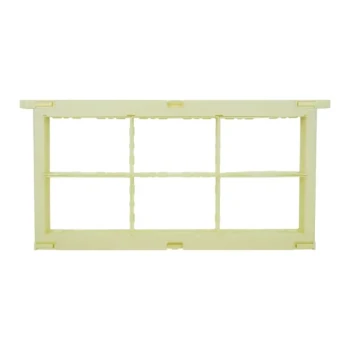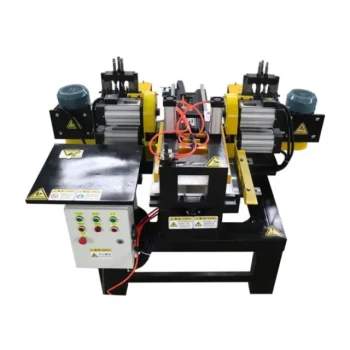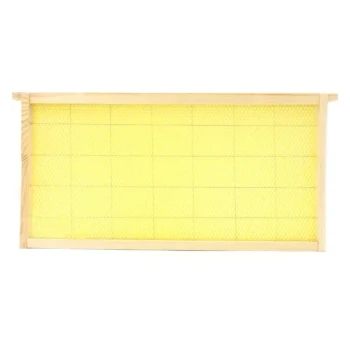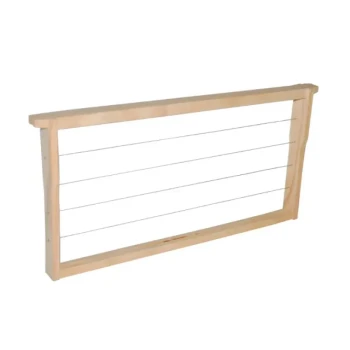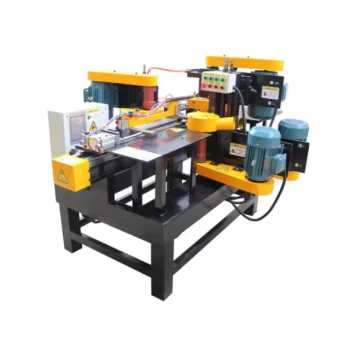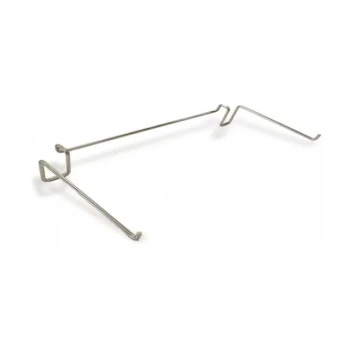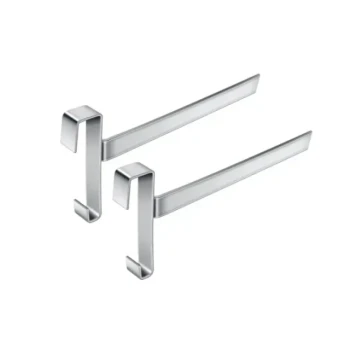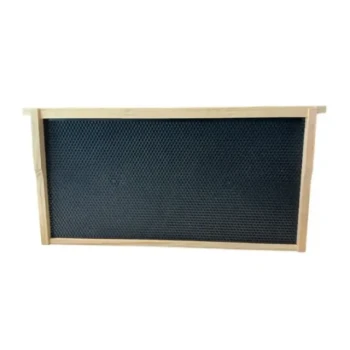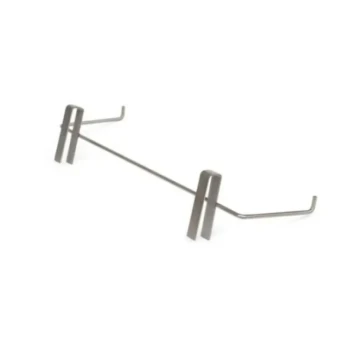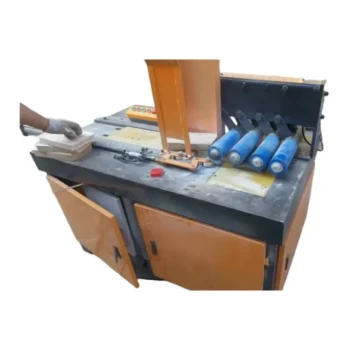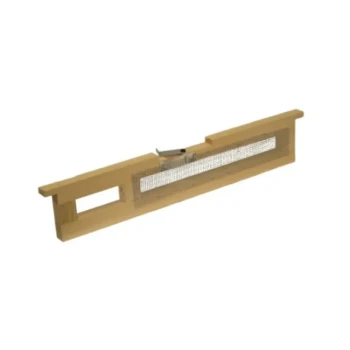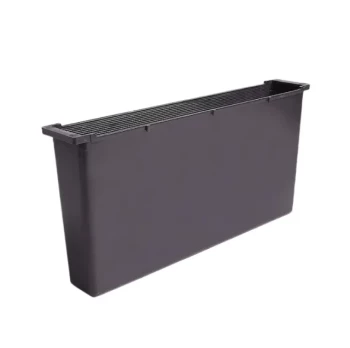When it comes to durability during honey extraction, wooden frames consistently outperform plastic. The core issue lies in their structural integrity under the high-speed centrifugal force of an extractor. Wooden frames are exceptionally rigid and, when properly wired, maintain their shape, whereas plastic frames carry a significant risk of bending or warping under the same stress.
The choice between wood and plastic for extraction durability is a choice between long-term reliability and potential convenience. While both can work, wooden frames offer superior resistance to warping, which is the primary failure point during the extraction process and a critical factor for the frame's reusability.
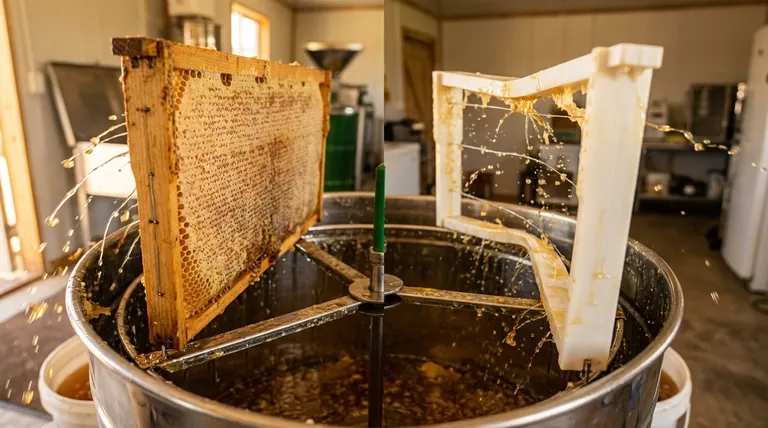
The Physics of Honey Extraction
The Role of Centrifugal Force
Honey extraction works by spinning frames at high speed inside a drum. This action generates powerful centrifugal force, which flings the honey out of the wax cells and onto the wall of the extractor, where it can be collected.
Frame Integrity Under Stress
This process places immense stress on the entire frame and the delicate wax comb it holds. The frame must be strong enough to support the weight of the comb and honey while spinning rapidly without flexing, bending, or breaking apart.
Why Wooden Frames Excel in Extraction
Natural Rigidity
Well-constructed wooden frames are inherently stiff and resistant to bending. Their design is time-tested to withstand the forces typical of a honey extractor without losing its precise rectangular shape.
The Importance of Wiring
Wooden frames are designed to be used with wiring. These wires are threaded through the frame and embedded into the wax foundation, creating a strong internal support grid. This wiring is critical for preventing the wax comb from blowing out or sagging during extraction.
Resistance to Warping
The primary advantage of wood is its unlikeliness to warp or deform under the forces of extraction. It maintains its shape, ensuring it can be easily returned to the hive and used without issue for many seasons.
Understanding the Trade-offs: The Plastic Frame's Vulnerability
The Risk of Bending and Warping
The main drawback of plastic frames is their susceptibility to warping. Under the strain of a spinning extractor, a plastic frame can bend, and in some cases, it may not return to its original flat shape.
This problem is more pronounced with lower-quality plastic or when extracting particularly heavy or cold honey, which requires more force to remove.
The Long-Term Consequences of Warping
A warped frame is more than a minor inconvenience. It becomes difficult to remove from and return to the hive box, can disrupt the critical bee space between frames, and may not fit properly in the extractor for subsequent uses. This damage effectively shortens the usable life of the equipment.
Making the Right Choice for Your Apiary
The decision ultimately depends on your operational priorities and tolerance for risk.
- If your primary focus is maximum durability and long-term reusability: Choose well-constructed, wired wooden frames. They are the most reliable option for withstanding repeated, aggressive extractions without deforming.
- If you are considering plastic frames for their other benefits (like pest resistance or ease of initial setup): Be aware of the warping risk. Invest in the highest-quality, most rigid plastic frames available and be gentle during extraction to minimize potential damage.
Choosing the right frame is a foundational investment in the efficiency and longevity of your beekeeping operation.
Summary Table:
| Feature | Wooden Frames | Plastic Frames |
|---|---|---|
| Structural Rigidity | Excellent (Naturally rigid) | Good to Fair (Risk of bending) |
| Resistance to Warping | High | Low to Moderate |
| Performance in Extractor | Maintains shape under high stress | Can deform under centrifugal force |
| Long-Term Reusability | High (Withstands repeated use) | Lower (Warping shortens lifespan) |
Invest in the durability of your apiary with HONESTBEE.
Choosing the right equipment is critical for a successful honey harvest and the long-term health of your operation. At HONESTBEE, we specialize in supplying high-quality, durable beekeeping supplies and equipment to commercial apiaries and distributors.
We understand that your bottom line depends on reliable, long-lasting gear. Our range of robust wooden frames is designed to withstand the rigors of commercial honey extraction, season after season.
Ready to equip your operation with frames built to last?
Contact HONESTBEE today to discuss your wholesale needs and discover how our equipment can enhance your efficiency and profitability.
Visual Guide
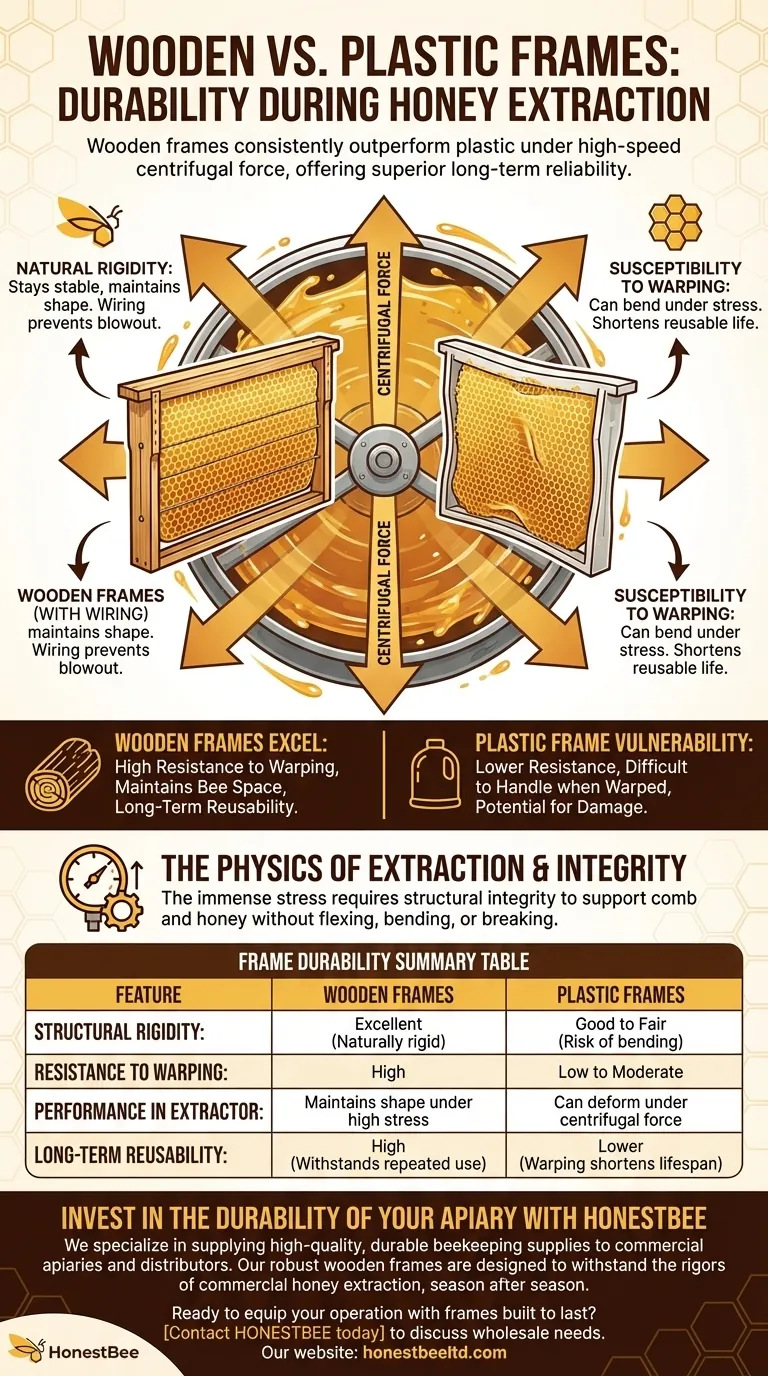
Related Products
- Heart-Shaped Comb Honey Frame and Honeycomb Cassette
- 10L Stainless Steel Electric Honey Press Machine
- Plastic Honey Comb Frames Cassette Box for Honey
- Electric Honey Press Machine for Squeezing Honey Comb Press Equipment
- Professional 500g Sectional Comb Honey Frame System for Beekeeping
People Also Ask
- What are honey super frames and what foundation options are available? Choose the Best Support for Your Bees
- How much honey can one medium frame yield? Unlock the Secrets to Maximizing Your Harvest
- What is the bee hive shape called? The Hexagon's Role in Nature's Perfect Storage System
- What is a benefit of storing honey-laden frames? A Strategic Food Source for Spring Colony Survival
- How much honey from a full frame? Maximize Your Harvest with the Right Frame Size




